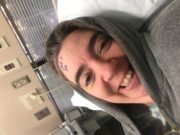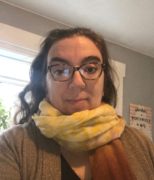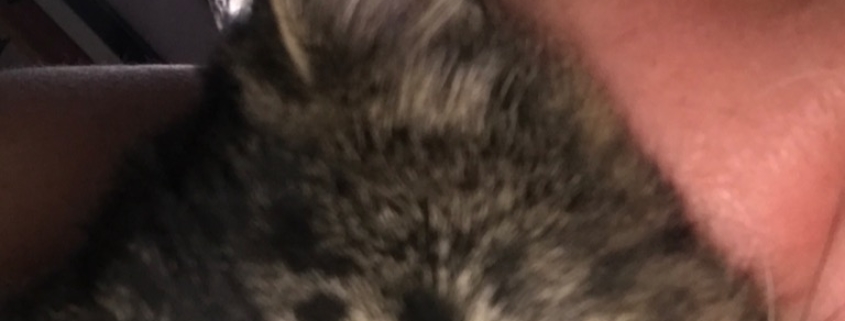Medical Freedom
It was the middle of the day on a Friday when the breast cancer nurse called. I’d forgotten she was going to follow up; two weeks before I’d spent a really uncomfortable hour in an MRI machine where they took biopsies of both breasts and then scanned them. A lovely radiology nurse named Asha stayed in the room with me because both of my arms had fallen asleep, from shoulder to fingers, and were becoming painful. I wasn’t allowed to move my arms at all, so she put ear plugs in her ears to keep out the banging noises of the machine, and stayed to rub my hands and fingers in an effort to make the situation a little bit better. The doctor thought she was was ridiculous, but she whispered in my ear that she was a Polish immigrant, and had seen much worse than him.
And so she stayed, and did her best. I already liked her, even before that choice. Before we’d started this procedure the doctor had come in to say that he thought we should just biopsy one breast, and that I should come back later in the week to do the second one. He said it’s easier to do two at once on the machine they have in Bellevue, an hour away, but he didn’t think I wanted to go out there. His faux concern for my time really made me mad.
“I have a job,” I said defiantly. “I told you I don’t live here, and I’m already in Tacoma, which is a huge pain for me to get to. If you’d told me this ahead of time I would have just gone to Bellevue, which is pretty much the same amount of difficulty as coming here.”
This wasn’t the answer he was expecting. Asha jumped in with an authoritative tone and narrow eyes. “Let’s see if we can do both today,” she said. “I’m sure we can make it work.”
 The doctor reluctantly agreed, and walked away to prepare himself. Asha wrapped up my IV, gathered my things and motioned for me to follow her. We were silent until we got in the elevator.
The doctor reluctantly agreed, and walked away to prepare himself. Asha wrapped up my IV, gathered my things and motioned for me to follow her. We were silent until we got in the elevator.
“I’ve seen your chart, honey, you already spend too much time with us. I’m sure you have a life to live outside of here. My best friend in Chicago has breast cancer, and she says that to me all the time. She says they want me to spend my whole life in the hospital, but that’s not what I need my life to be.”
* * *
I’d thought it would be Asha who would call with my test results, but instead it was this strange nurse I’d never seen, who was apparently calling from an office in Seattle, sixty miles away from my town. She had a detached manner, and she matter of factly explained that they’d found cancer in my right breast, the kind of cancer one that doctors had said not to worry about, that it was fine, that this was just a precaution.
I wondered if this detached tone of voice worked for her, if it helped keep women from getting too emotional to absorb all of the information. I was writing down the words ductal carcinoma in situ, because I can never remember the official words for medical things. I also wrote the words stage zero, surgeon next week, and lumpectomy with radiation.
The breast cancer nurse asked me what my thoughts were, and I said, “Well, it’s not surprising.” I had a lot of other feelings, but I wasn’t going to get into it with her.
She hadn’t read my chart the way Asha had, and she didn’t know about the genetic condition that is growing pre-cancerous cells everywhere in my body. She didn’t know about my regular colonoscopies, my craniotomy, my abdominal surgery. She was just working through her list of calls, spending her whole day telling women they have breast cancer, that a surgeon would be calling them, and that she would be putting information in their online portals for them to read when they were ready.
I live in a small community, and my surgeon has been with me for years now. He was the on call surgeon in the ER the night I was there with an exploding appendix, though I don’t have a clear memory of his face from our first meeting. I only remember his authoritative voice. I was in the worst pain I’d ever experienced, and the ER nurse had just strong armed the ER doctor into giving me more pain medicine, because she could see that I needed it. I told Dr. Jones that I’d been told my appendix probably hadn’t burst, and he very practically said, “Well, they shouldn’t have said that. There’s no medical way to know that for sure until we get in there.”
My friend who was with me said, “So she’s having surgery then for sure? When?”
“Oh we’re going right now, “ Dr. Jones said with some measured urgency. “I’m going to get ready and meet her in there.”
My appendix did explode that day, and Dr. Jones took two liters of toxins out of my abdomen. He also took pre-cancerous cells out of my other breast. They sent me back to see him the week after the breast cancer nurse called. I didn’t edit my words with him.
“I’m really grumpy, Dr. Jones.”
“I bet,” he said. “You’ve been through a lot and this one is not fun.”
We spent an hour in his office talking about the options. When he told me that not only was the standard of care to have a lumpectomy with sixty days of daily radiation, that afterwards I’d have to get MRIs every six months indefinitely, and have a significant chance of recurrence. I thought my head was going to explode.
“It’s not just the MRIs,” I said. “It’s that they find something on every single scan that needs to be followed up on, so they’ll make me come back the next week, and the next week, and it’ll fucking never ever end.”
“I understand, I get it. Because this is the second pathology for you, and because of your genetic condition, you have the right to opt for a single or double mastectomy. The double mastectomy is actually an easier surgery than the others you’ve had. It’s only one night in the hospital, and you could potentially be back at work in two weeks. And you’d also be free from the follow ups, because you’d no longer need MRI scans.”
“If this happened to men, they would already have found a way to avoid these constant scans and endless follow-ups.”
“I agree.”
He agreed because his wife is going through the same thing. She is going for MRIs every six months to stave off a recurrence and he was starting to realize the toll that it took to be in these cold rooms, on cold tables, half dressed in gowns that are just the illusion of being covered up, waiting for tests and procedures that never promise certainty. Every appointment involves so much waiting: to be called back, to get an IV put in, to get the test ready, to be in the right spot for the biopsy, to get the notes from the radiologist, to consult someone, to consult someone else. He was over it, his wife was over it, and he understood why I was too.
* * *
That would make him the exception. When your life is at risk, you are supposed to want to be there with the doctors as often as they tell you that you need to be. You are supposed to be grateful for the life saving cold tables, the crucial MRI scans that find everything, and the nights in the hospital where they have to wake you up every hour per hospital policy.
In some ways I am grateful. Like a prisoner who is grateful for  books and education, I am thankful that modern medicine gives me the ability to live my life and to do things that everyone deserves to do, like write an angry essay.
books and education, I am thankful that modern medicine gives me the ability to live my life and to do things that everyone deserves to do, like write an angry essay.
However, it’s dangerous to be an angry sick woman. Doctors look at you and say that they know you are scared, but that it’ll be ok, and do you want to go to therapy? You get written off, they’re less likely to listen, so in order to advocate for yourself you have to try not to sound angry, even if you have every right to be.
* * *
The appendectomy was the beginning of a cascade of medical drama in my life; they did a colonoscopy and found dozens of polyps, I was given three different inhalers and multiple rounds of steroids to control a sudden onset of asthma, they found pre-cancerous cells and more cells. Painful cysts grew on my legs, hands, and back that had to be removed. Half of my face became completely numb, and they discovered a tumor resting on my brain. I kept saying that all of these things must be connected to each other and was told in no uncertain terms that they were not. Breast cancer seems to be proving me right.
* * *
For the first time in quite a while, I felt like going out in the world today. I went to Costco, and the farmer’s market, and the gym. I laughed to myself when I saw little kids screaming at their dad for denying them Costco samples, saying, “Mommy lets us! You are so mean!”
I enjoyed talking with the woman at the meat market. I bought tomato plants from a sweet farmer who reminded me that it wasn’t time to put them outside yet. I rolled my eyes at the pretentious folks working to make their weekend dinners just so, and made jokes with strangers about how the whole town was out in the sun, which we thought might never be coming back. I smiled politely at the grumpy old man who complained about the packed parking lot when he cursed at the out of state license plate next to us, “damn Californians ruining everything!”
Women deserve to be able to say that the burden of healthcare treatments can grow to be too much and that researchers, doctors, and hospitals should prioritize our lives. Medical research has unearthed amazing discoveries. They can give us our lives back. I’m not sure I should have to have a double mastectomy in order to live my life. But unlike a lot of other women, I have that choice and I have the health insurance to cover it, so that’s what I’m going to do. Being able to go to the farmer’s market is not too much to ask.
 Emma Margraf is a recent graduate of Antioch University’s MFA program. She lives in Olympia, Washington where she just rescued a kitten, chases after the neighbor’s stray chickens, and enjoys watching reruns of Buffy.
Emma Margraf is a recent graduate of Antioch University’s MFA program. She lives in Olympia, Washington where she just rescued a kitten, chases after the neighbor’s stray chickens, and enjoys watching reruns of Buffy.





